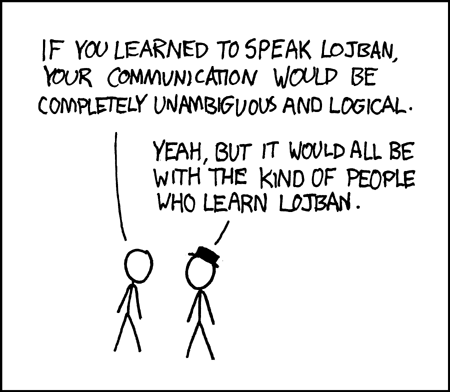In XVIII century Euler critiqued the Newton's classical mechanics and constructed his own one. The main difference between their viewpoints was that Newton said "force is force, moment is multiplication of the force on some perpendicular distance", Euler said "force is force, moment is moment", i. e. Euler's "moment" is an independent from forces essence.
It was a very strong thought, but Euler had described it on Latin when he worked in St. Petersburg's academy of sciences. That's why his idea was unknown and was archived in Russian library.
In the end of XX century his tractate was revised, explicated and expanded to "Euler's mechanics" as refreshed and innovated branch of theoretical mechanics. It can solve all the Newton's mechanics' problems and some more (electricity, mechanics of microparticles, etc.).
---------------------------------------------
So, was it a mistake to write the tractate on Latin in XVIII?
Latin is a perfect, simple, beautiful language. It has a "dead" status that means only "it doesn't evolute". It is good to write scientific tractates on the dead languages because they are very stable and not difficult. But they are unpopular. Who knows Latin today?
---------------------------------------------
I was taught a lot in sciences and can research the novel fundamental knowledge. In what language should I publish my ideas? The candidates:
1) Native language (Russian) without grammatical mistakes
2) English with grammatical mistakes (like in the current message, but I can improve the skill later)
3) Esperanto. It is the most popular dead and constructed auxiliary international language.
4) Interlingua (Latin 2.0). It is a dead language constructed primary for writing scientific papers. It is a common and stabilized grammar and lexicon of French, Portuguese, Spanish and Italian.
The first, third and fourth cases are thrown aside because I want more potential readers. But I find the ideas of Esperanto and Interlingua very progressive. Particularly, I dislike Esperanto because it has letters with caps that have no place on keyboards, it has the exclusive sibilant Polish's sounds and it has not so easy using of suffixes. If Interlingua has a community like Esperanto has, I will write on Interlingua, but it hasn't. Today English is only one real language for scientific tractates.
---------------------------------------------
I want to know your opinions about the constructed international auxiliary languages.
It was a very strong thought, but Euler had described it on Latin when he worked in St. Petersburg's academy of sciences. That's why his idea was unknown and was archived in Russian library.
In the end of XX century his tractate was revised, explicated and expanded to "Euler's mechanics" as refreshed and innovated branch of theoretical mechanics. It can solve all the Newton's mechanics' problems and some more (electricity, mechanics of microparticles, etc.).
---------------------------------------------
So, was it a mistake to write the tractate on Latin in XVIII?
Latin is a perfect, simple, beautiful language. It has a "dead" status that means only "it doesn't evolute". It is good to write scientific tractates on the dead languages because they are very stable and not difficult. But they are unpopular. Who knows Latin today?
---------------------------------------------
I was taught a lot in sciences and can research the novel fundamental knowledge. In what language should I publish my ideas? The candidates:
1) Native language (Russian) without grammatical mistakes
2) English with grammatical mistakes (like in the current message, but I can improve the skill later)
3) Esperanto. It is the most popular dead and constructed auxiliary international language.
4) Interlingua (Latin 2.0). It is a dead language constructed primary for writing scientific papers. It is a common and stabilized grammar and lexicon of French, Portuguese, Spanish and Italian.
The first, third and fourth cases are thrown aside because I want more potential readers. But I find the ideas of Esperanto and Interlingua very progressive. Particularly, I dislike Esperanto because it has letters with caps that have no place on keyboards, it has the exclusive sibilant Polish's sounds and it has not so easy using of suffixes. If Interlingua has a community like Esperanto has, I will write on Interlingua, but it hasn't. Today English is only one real language for scientific tractates.
---------------------------------------------
I want to know your opinions about the constructed international auxiliary languages.

